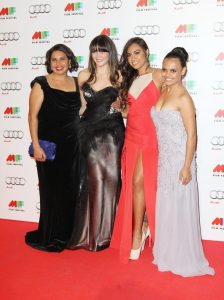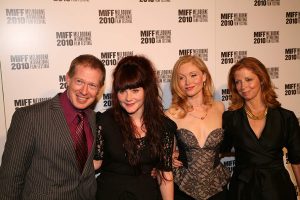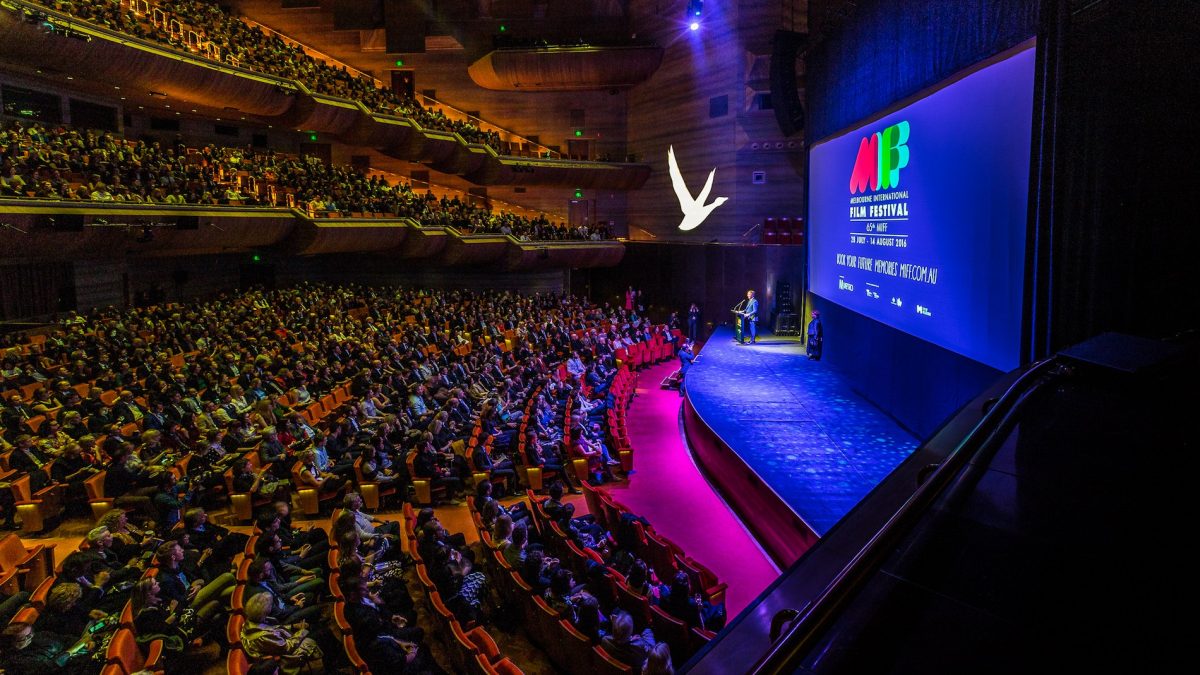One of the world’s top international film festivals will take place in August. The Melbourne International Film Festival, Australia’s leading film festival, will showcase the best examples of creative filmmaking from all around the world.
The Melbourne International Film Festival or MIFF is the biggest and most famous film festival in the southern hemisphere. The festival acts as a platform for rewarding excellence in film and is accredited by the American Academy of Motion Picture Arts and Sciences, the British Academy of Film and Television Arts (BAFTA), and the Australian Academy of Cinema and Television Arts (AACTA).
The festival takes place in the heart of Victoria, Australia, in Melbourne City Centre (known locally as the CBD). The main screening venue for the event is the Australian Centre for the Moving Image, which serves year-round as a digital arts museum.
As of 2013, other venues include the Forum Theatre, Mandala Festival Wine Bar, Greater Union Cinemas, The Arts Centre Melbourne, Hoyts Melbourne Central, Kino Cinemas, Wheeler Centre, Speakeasy Cinema, and the Village Roadshow Theatre.
The Melbourne International Film Festival receives about 350 film submissions each year, be they short or feature-length. These films are organized into programs and are entered into the most appropriate film competitions.

As of 2013, winners in the following categories (Best Short, Best Fiction, Best Documentary, and Best Animation) qualify consideration for Academy Award nominations. The MIFF short film awards are also recognized by numerous other famous film and television organizations including the AACTA and BAFTA.
In its 67th year, the Melbourne International Film Festival promises three weeks of innovative films and amazing entertainment for local and international attendees.
Highlights of the 2018 Festival include the opening night screening of “Wildlife”, starring Carey Mulligan, Jake Gyllenhaal, and Ed Oxenbould. The closing night gala will present the world premiere of “The Coming Back Out Ball Movie” to pay tribute to Australia’s LGBTIQ pioneers and their achievements.
The festival will also feature an overnight marathon of Nicolas Cage’s movies (The Cage-a-Thon) at the Astor Theatre. The MIFF will also host workshops, annual talks, power shops, and numerous parties and other events.
History
Founded in 1952, the Melbourne International Film Festival is Australia’s longest running and therefore most distinguished film festivals.
The inaugural festival in 1952 showed 8 feature films and 79 short films during its program. These films were screened on the 25th to the 28th of January over the Australia Day weekend. Among the films featured in the first festival were “A Tale of Two Cities” by M. Kobel, “A Lecture on Anatomy” by Lux Studios, “Ballade Atomique” by Jean Image, “El Dorado” by John Alderson, “Lousiana Story” by Robert J. Flaherty” and “La Belle Et La Bete”, Emile Darbon and Jean Cocteau’s version of the Beauty and the Beast.
In 1962, the MIFF began its short film competition. The festival further expanded its program to include feature film and documentary award categories. In 1965, the festival officially presented the Grand Prix, the highest award for the short film winner in the competition.
Film submissions for the festival increase significantly every year. From an initial program of about 87 total films in 1952, over 356 films were received in 2017. The festival attracts local and international attendees and earns millions in revenue annually, making it a major contributor to the Victorian economy.

Program and Awards
The following categories feature in the Melbourne International Film Festival’s program.
- International Panorama- a careful selection of world cinema
- TeleScope- consists of 12 new films from 12 European Union (EU) countries
- NextGen- films made for younger audiences
- Australian Showcase of new Australian cinema
- Accent on Asia- features films from the Asia-Pacific region
- Inside the DPRK and Juche Showtime: Films of the DPRK- films about the life and the cinematic industry in North Korea
- A League of Their Own: New Arabic Cinema- features films from the pan-Arabic world
- States of Play: American Independents- features independent films from the United States
- Shining Violence: Italian Giallo- presents films of the Italian “Giallo” subgenre
- Defying the Times: Activism on Film- presents films on political activism
- Documentaries
- Masters and Restorations- features filmmaking documentaries and restorations
- MIFF Premiere Fund- consists of Australian films supported by the MIFF Premiere Fund
- Backbeat- films on music
- Night Shift- films on the horror and thriller genre
- This Sporting Life- films on sports
- Animation
- Short Film Packages
- Pre-Feature Shorts
- Special Events- includes opening and closing night feature film screenings
- Talking Pictures- consists of talks and workshops with the Festival’s honorable guests, filmmakers, and famous personalities
The festival is proud to present the following awards to the winners of each competition.
Short Film Awards
- Grand Prix for Best Short Film presented by the City of Melbourne (10,000 AUD)
- Film Victoria Erwin Rado Award for Best Australian Short Film (7,000 AUD)
- Swinburne Award for Emerging Australian Filmmaker (5,000 AUD)
- Cinema Nova Award for Best Fiction Short Film (5,000 AUD)
- Holmesglen Award for Best Animation Short Film (5,000 AUD)
- The Astor Theatre Award for Best Experimental Short Film (5,000 AUD)
- BBC Knowledge Award for Best Documentary Short Film (5,000 AUD)
- Jury Special Mention Award
Feature Film Awards
- People’s Choice Award for Best Feature
- People’s Choice Award for Best Documentary
- Telescope Best European Feature Award
- The Age Critics’ Award (presented by “The Age” newspaper)
Here are some of the most recent winners of the Grand Prix for Best Short Film.
2017- Fry Day by Laura Moss (USA)
2016- Mrs. Metro by Aggelos Papantoniou (Australia)
2015- Everything Will Be OK by Patrick Vollrath (Germany)
2014- The Queen by Benjamin Parent (Argentina)
2013- Pandas by Matus Vizar (Czech Republic)
How to Enter Your Film
The Melbourne International Film Festival accepts film submissions through the Withoutabox website. Unfortunately, if you wish to enter your film for the 2018 festival, submission of entries has already closed as of the 14th of April, 2018.
The call for entries for next year’s festival will most likely begin in November 2018, so stay tuned for official submission dates and deadlines.
The entry fees for each film category vary and rates increase as the date become closer to the submission deadline. Payments are accepted in Australian currency via Visa or Mastercard.
For a complete list of film competition regulations and eligibility requirements, visit the Festival’s official website at https://miff.com.au/about/submission-regulations.
For all other submission queries and more information, you can send an email to the Submissions Department at submissions@miff.com.au.
The 67th Melbourne International Film Festival will run from the 2nd of August, 2018, until the 19th of August, 2018.
Subscribe Us –




Stay connected